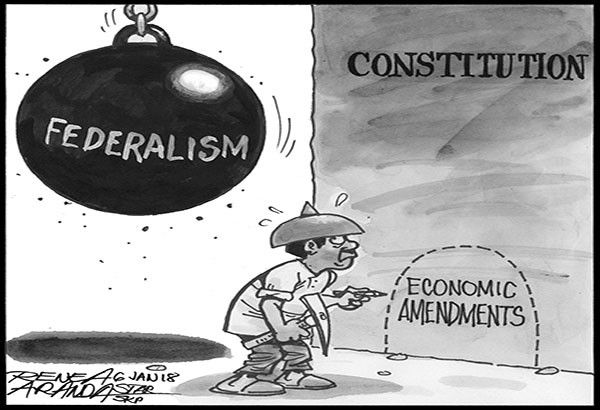EDITORIAL - Self-serving agenda

Previous attempts to amend the Constitution should have imparted one indelible lesson to its proponents: the surest way to kill Charter change is to inject a self-serving element into the initiative. And always, that self-serving element has been a term extension, whether for the president or lawmakers who play a direct role in Cha-cha.
Some lawmakers who floated the idea of a term extension earlier this week have since soft-pedaled. Malacañang officials also said any term extension for President Duterte is “out of the question.” But the seeds of suspicion have been planted in the public mind, making federalism an even tougher sell.
The shift to a federal form of government is presented as the principal objective in the latest Cha-cha effort. It is a foreign concept to many Filipinos, and with the possibility of the shift leading to a term extension for elective officials, public resistance is bound to be reinforced.
In recent years, resistance to Cha-cha softened due to the emphasis of proponents on lifting economic restrictions that deter investments and job generation. Restrictions on foreign ownership and control over their businesses are seen as major reasons for pulling down the country’s competitiveness in attracting foreign direct investments.
Lifting economic restrictions can be done by merely amending certain provisions in the Constitution. Lawmakers previously said this could be possible even through a congressional act. The current Cha-cha effort, however, has since shifted its focus to changing the form of government. This requires a full rewriting of the Constitution, which entails a more complex mode of Cha-cha.
Regardless of the focus or the mode chosen for Cha-cha, the final say will come from the people in a referendum to ratify the changes. Anything that smacks of a self-serving agenda on the part of Cha-cha proponents is certain to erode public support.
- Latest
- Trending

























